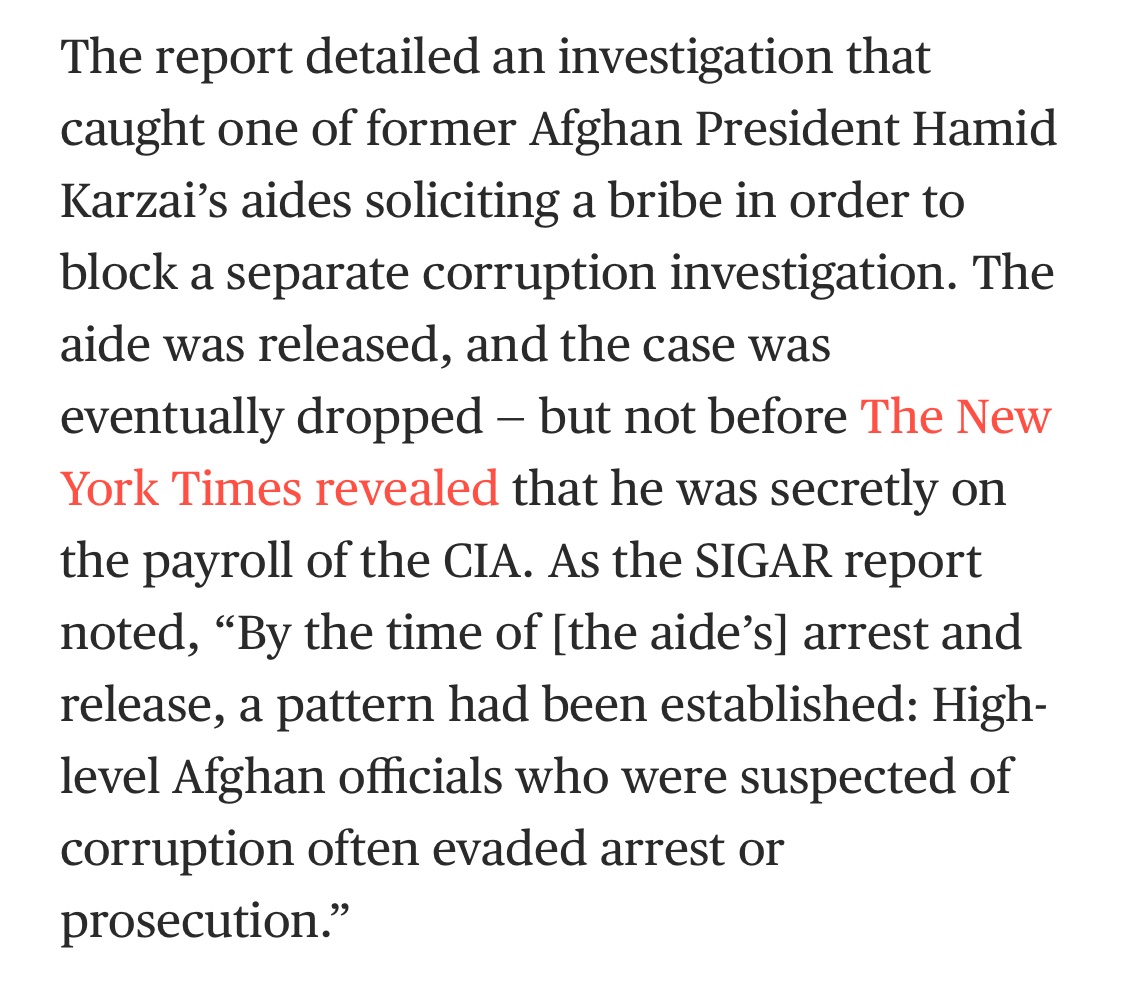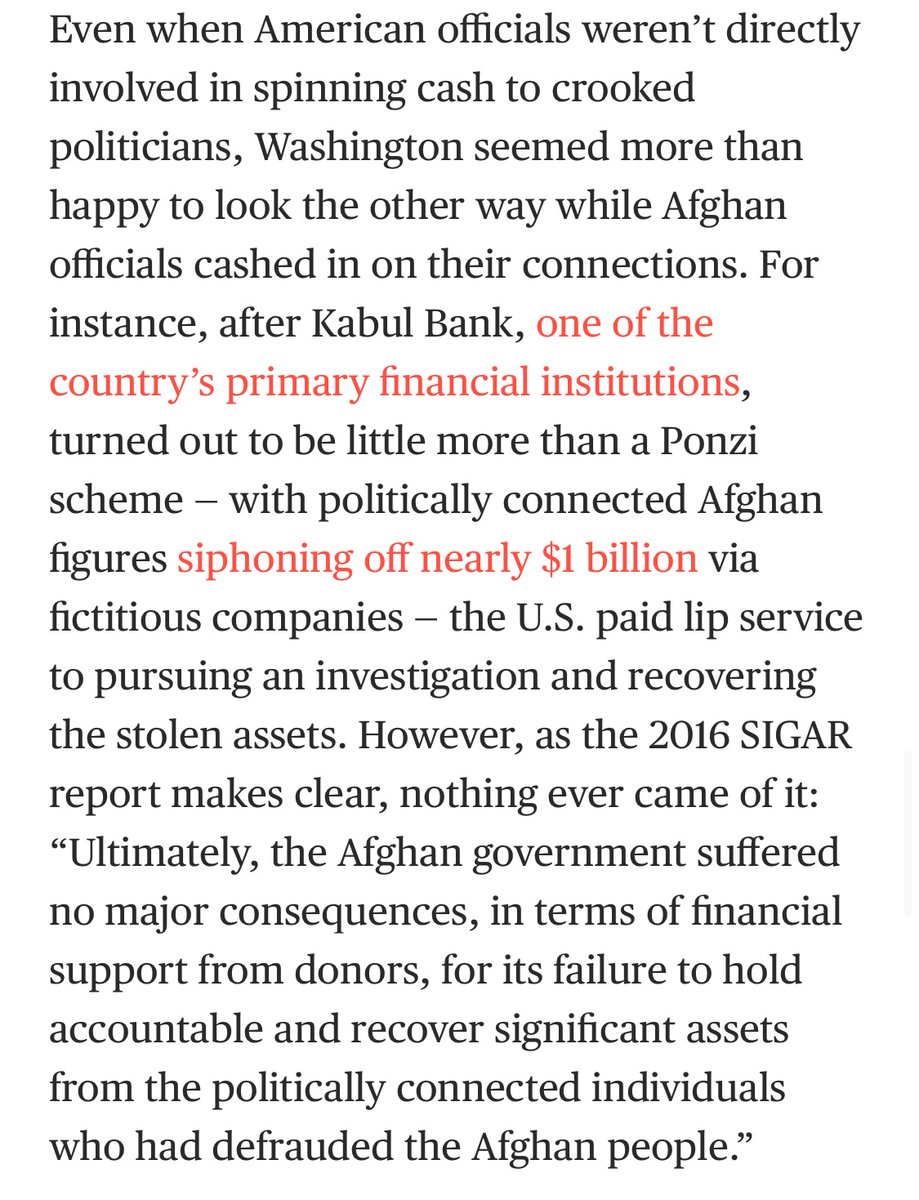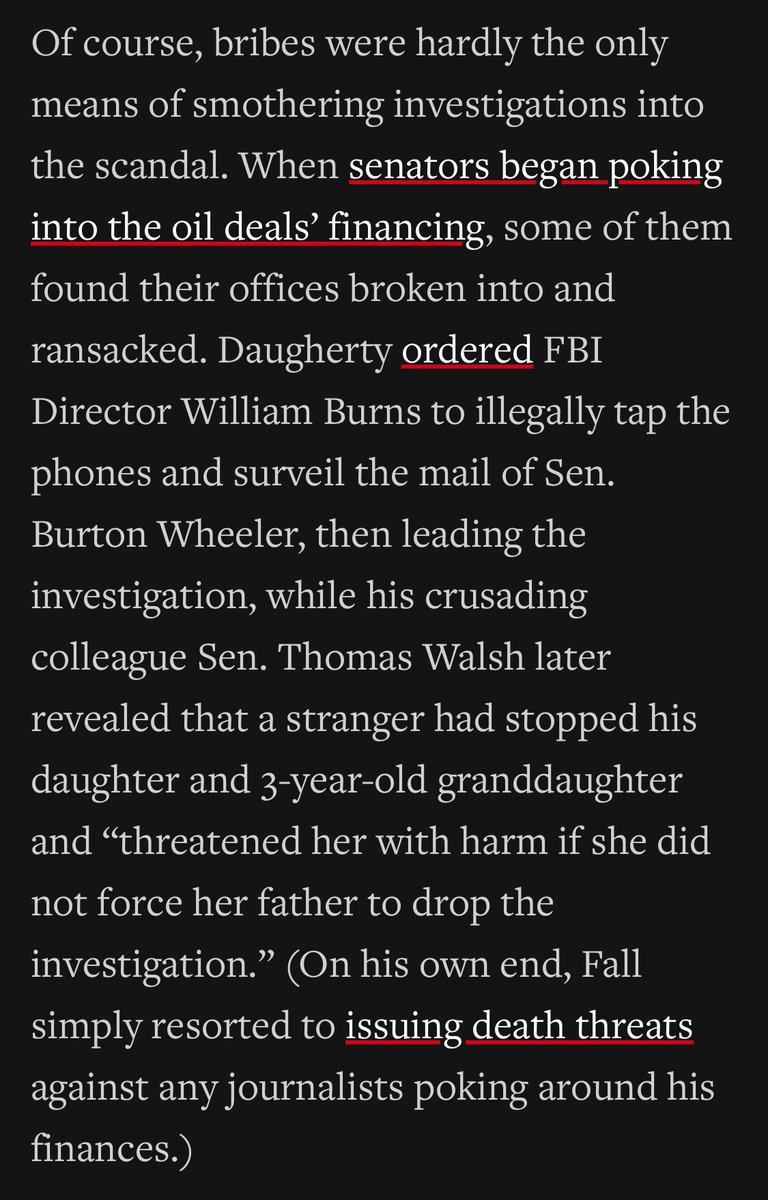
NEW: For years, the US aided and abetted swelling corruption in Afghanistan, turning a blind eye to the kleptocracy it fostered.
And now we’re watching the results of what happens when you ignore corruption in the name of “security.”
nbcnews.com/think/opinion/…
And now we’re watching the results of what happens when you ignore corruption in the name of “security.”
nbcnews.com/think/opinion/…
For a deep dive into how the US fanned the flames of corruption in Afghanistan, tough to beat the 2016 @SIGARHQ report, which got little attention at the time:
https://twitter.com/cjcmichel/status/1427355250764230658?s=20
There was a ridiculous amount of elite corruption the US helped sweep under the rug in Afghanistan:
“A pattern had been established: High-level Afghan officials who were suspected of corruption often evaded arrest or prosecution.”
“A pattern had been established: High-level Afghan officials who were suspected of corruption often evaded arrest or prosecution.”

Bags of cash. “Ghost money.” Billions of dollars ending up with criminal syndicates and crooked officials.
To quote one American official: “The biggest source of corruption in Afghanistan was the United States.”
nbcnews.com/think/ncna1277…
To quote one American official: “The biggest source of corruption in Afghanistan was the United States.”
nbcnews.com/think/ncna1277…

And then there was the Kabul Bank fiasco. Nearly $1 billion, whisked away from Afghan depositors for crooked, politically connected Afghan elites. It was all a giant Ponzi scheme.
But did that change anything when it came to US support? Nope.
But did that change anything when it came to US support? Nope.

Over and over, the US chose “security” over anti-corruption action in Afghanistan.
As @SIGARHQ wrote, “security and political goals consistently trumped strong anti-corruption actions.”
washingtonpost.com/graphics/2019/…
As @SIGARHQ wrote, “security and political goals consistently trumped strong anti-corruption actions.”
washingtonpost.com/graphics/2019/…
This quote sums up so much of the US failure in Afghanistan: “We just assume America wants the corruption. We have no other way of explaining… how America has behaved itself.” 

None of this should necessarily be surprising. Time and again in Afghanistan, the US said it was prioritizing security over efforts to combat corruption.
And in the end, we got neither.
nbcnews.com/think/ncna1277…
And in the end, we got neither.
nbcnews.com/think/ncna1277…

'For almost two decades now, billions of dollars in corruption proceeds have been funneled from Afghanistan... to Dubai.' carnegieendowment.org/2020/07/07/kab…
A stupendous US media failure: when this 2016 @SIGARHQ report on the US fueling Afghan corruption came out, there was a grand total of *one* mainstream outlet (ABC) that covered it.

https://twitter.com/cjcmichel/status/1427355250764230658

Also good time to revisit how corruption related to the Afghan war decimated US standing elsewhere: rferl.org/a/Congressiona…
'Ultimately, both [South Vietnam and Afghanistan] fell because they had been hollowed out by corruption, an ancient disease of governance to which America’s nation-building projects are prone.' economist.com/international/…
• • •
Missing some Tweet in this thread? You can try to
force a refresh









